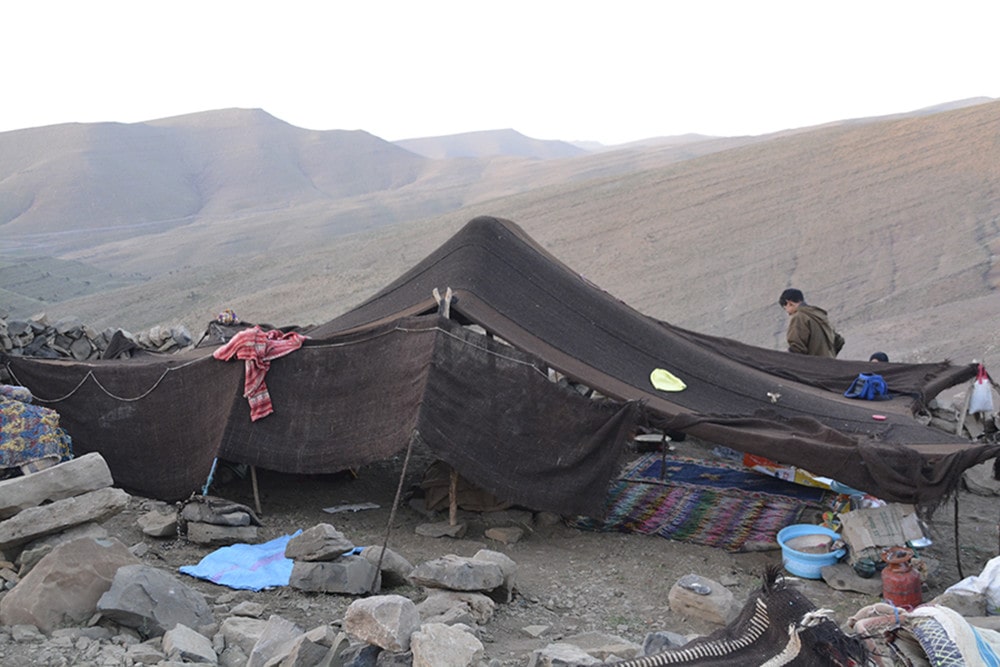Berber Nomads in Morocco
Berbers or Imazighen
Berber Nomads in Morocco: Berbers (Amazighs, Imazighen, in the Berber Language) are the ethnic group indigenous to North Africa. They are distributed in an area stretching from the Atlantic Ocean to the Siwa Oasis in Egypt, and from the Mediterranean Sea to the Niger River. Mountain Berbers live in houses made of mud bricks or cement. However, the wandering desert Berbers Nomads use black tents made of goat and camel hair that can be easily loaded onto camels for the journey across the desert. The tents are simple affairs held up with wooden poles and have no floors.
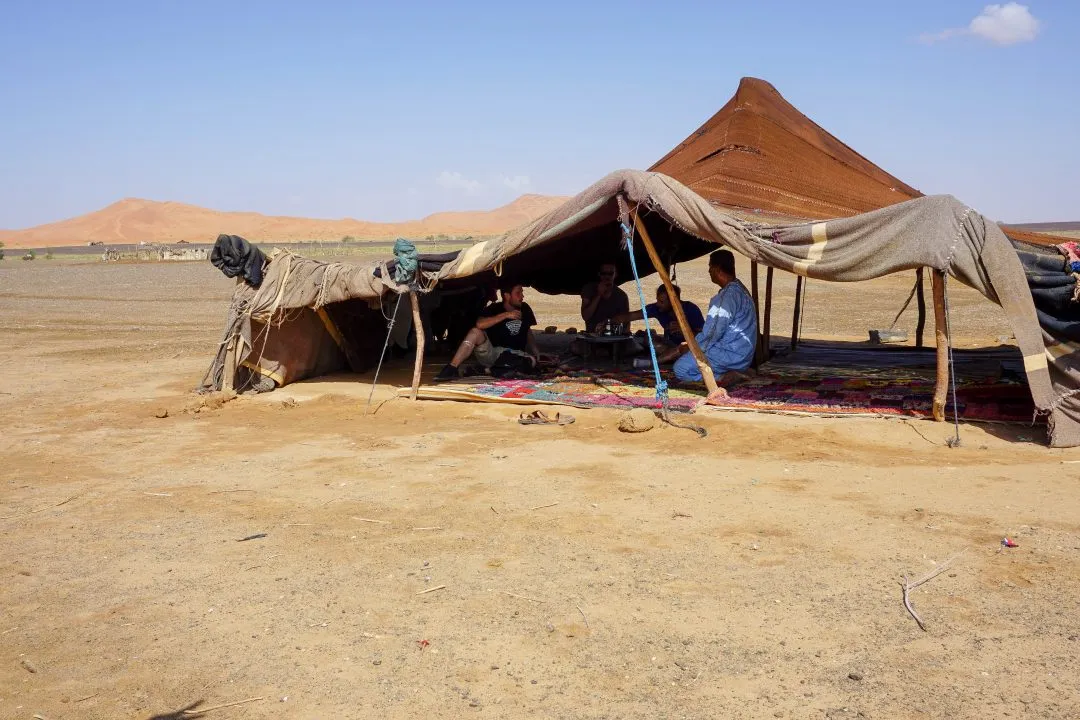
Berbers in Morocco
The Berbers are known for their close connection to the land, often living in the mountains and desert regions of countries like Morocco, Algeria, Tunisia, Libya, and others. Traditionally, they have been skilled farmers, herders, and traders, adapting to the challenging environments in which they reside. Over time, the Berber people have experienced influences from different civilizations and cultures, contributing to their rich and diverse heritage. Today, many Berbers continue to preserve their traditions, while also engaging with the modern world.
Berber Villages in Atlas Mountains
In Morocco’s Atlas Mountains, Berber villages are like special places with a long-lasting magic. Fields that look like stairs and houses made of mud bricks show a beautiful mix of old ways and nature. People’s lives here are all about working together on farms and being friendly to guests. Berber villages are strong and unique, like safe spots where the old and new come together in Morocco’s rich mix of cultures
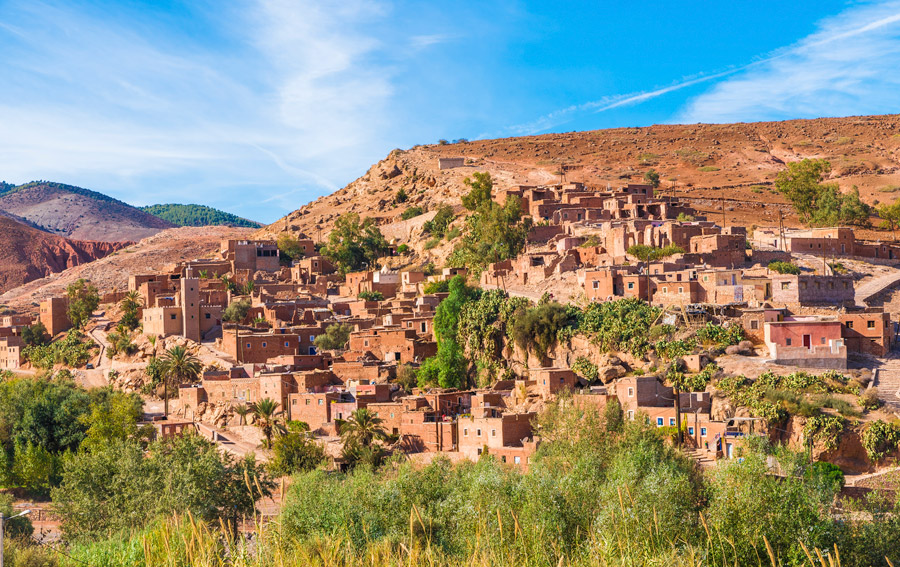
Berbers in the Sahara Desert
In the Moroccan Sahara, Berbers, or Amazigh, exhibit diverse lifestyles broadly categorized into two groups. The first embraces a semi-modern existence, constructing houses, working in fossil fields, engaging in agriculture, and contributing to tourism. The second group maintains a traditional nomadic lifestyle, embodying mobility and seasonal migration in search of grazing grounds for their livestock. These contrasting lifestyles highlight the adaptability and cultural richness of the Berber community in the Sahara
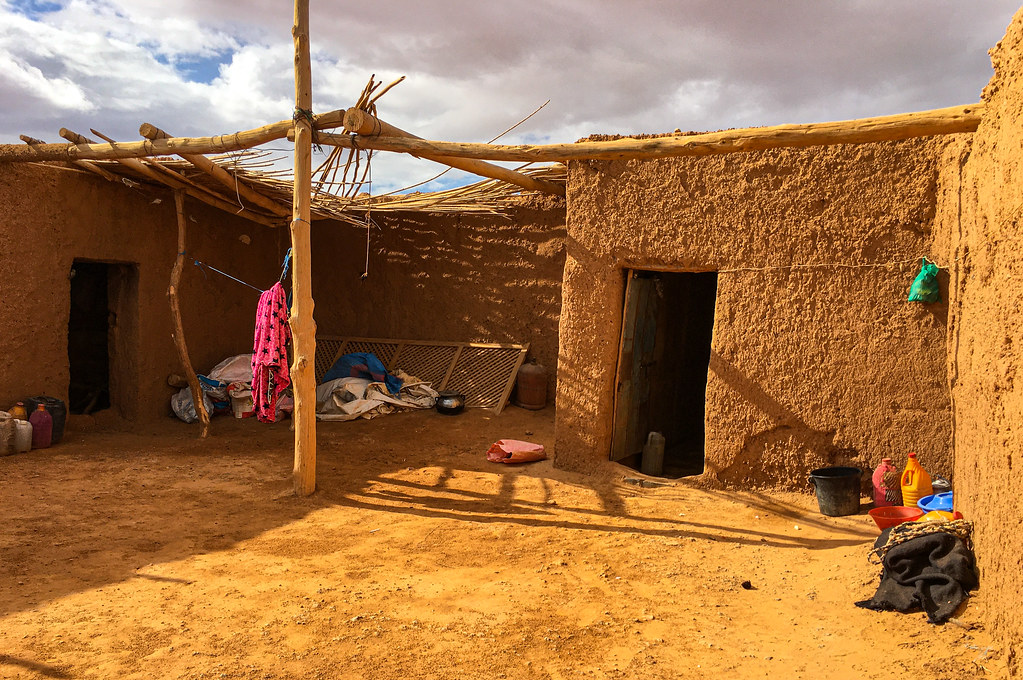
Berber Nomads in Sahara Desert
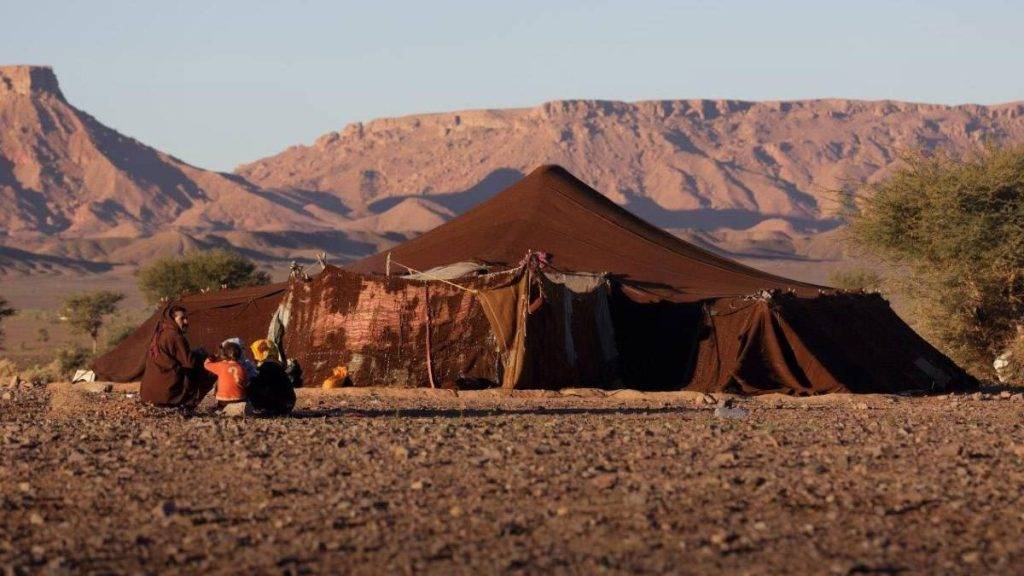
Men are dressed in typical Berber blue clothing. The tough conditions of the Sahara desert prevented any serious attempt at agricultural development. For this reason, the Berbers preferred to lead a nomadic rather than sedentary lifestyle. This mobile lifestyle is central to their culture, which is perhaps why they refer to themselves as “free people.”
Men and boys take care of the livestock. Women raise the children, cook, and make handicrafts – first for their personal use, and secondly for sale in regional open-air market places called souks. The Berber tribes are famous for woven carpets and rugs, especially those living close to, or in Morocco. The tapestry designs reflect the traditional customs and origins of each tribe. While mountain Berbers grow crops and raise animals on mountain terraced slopes, nomads depend upon the herds of sheep, goats, and camels for meat, milk, and cheese. Hunting and gathering, following seasonally available wild plants and game, offers some variety to the daily diet.
Traditionally, the Berbers have used their unique ability to navigate the Sahara to act as key players in the trade network between North Africa and the Middle East. It is difficult to find your way through the faceless, sandy landscape of the Sahara desert. That’s why Berber in the Sahara are like Sailors on the high seas, they orient themselves by the stars.
In addition, the Berbers have many stories and songs describing how to find small watering holes and a number of recognizable landmarks scattered across the desert.
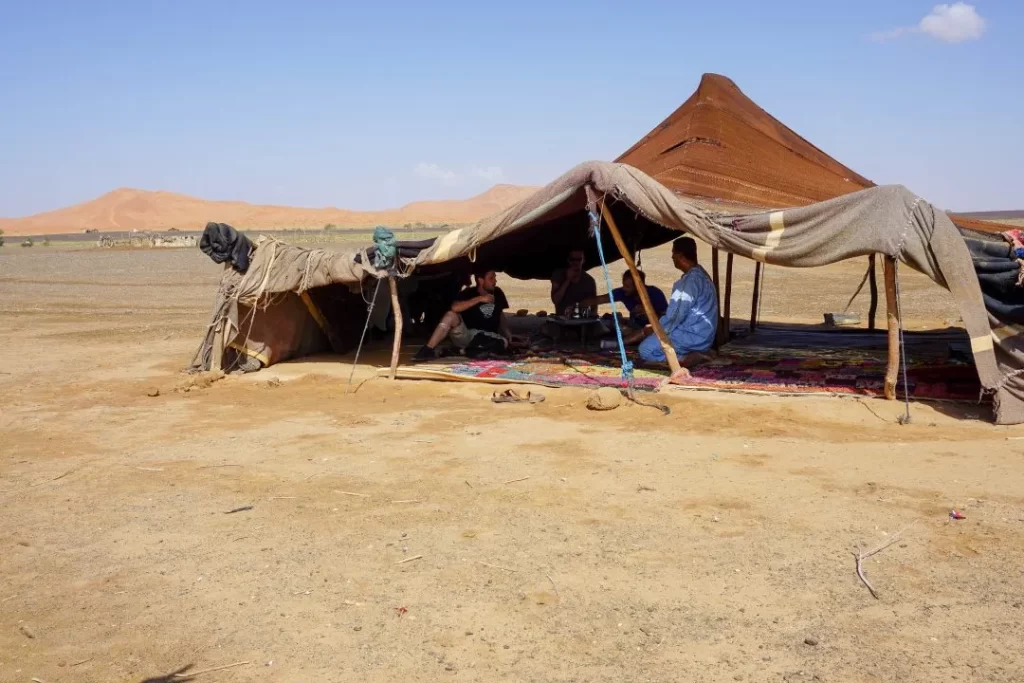
Social Structure of Berbers in Morocco
In terms of religion, the vast majority of Berbers are Muslim and have practiced their faith for centuries. But there are a few unique aspects of their culture that have survived cultural influences.
Berber society is centered on the concept of the tribe, which usually consists of extended family clans. Each tribe has its own leader. The chief is responsible for justice and the resolution of disputes, as well as making important decisions concerning the tribe.
Like other nomadic cultures, the Berber clans live in tents, which they set up when they find a good place to graze their animals. A particularly unique part of Berber culture is guest rights. When one receives food and water from the Berbers, he becomes their guest. In this case, the host takes responsibility for the safety of the guest.
It may seem strange from a Western perspective, but in a place where finding accommodation and water is a matter of life and death, hospitality is very important.
Private Tours to the Berber Nomads
Experience the magic of Morocco with our special tours to the Sahara Desert. Every private tour to the Sahara includes a unique stay with Berber nomads in Morocco. We will be welcomed at their black tents to enjoy Moroccan mint tea, and take a short tour to explore the lifestyle of nomads in the area
